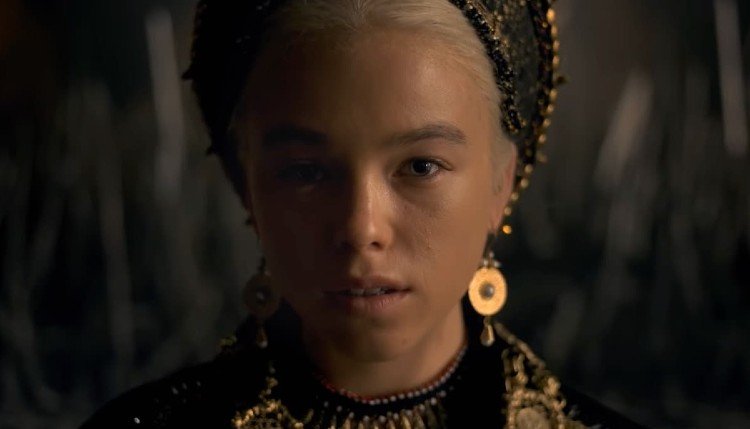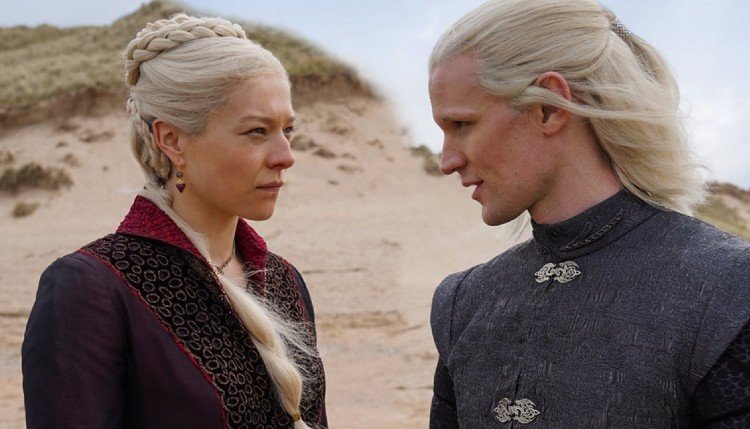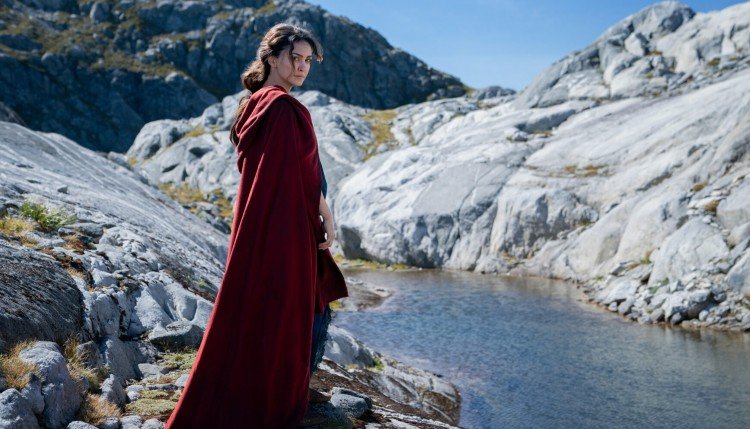Dragons and Rings, Diamonds and Pearls: A Look Back At What I Missed
I don’t know what to think anymore. I’ve completely lost the plot. I knew I had a contrarian perspective when Game of Thrones fans started complaining about the final seasons of their beloved dragons and sex mélange. I watched those final seasons and had absolutely no problem with them. It was a great show that took a while for me to get into—as I avoided it in the regular broadcast run from 2011 to 2019. It was only when HBOMax put the show on streaming, and I could binge-watch it that I truly began to appreciate it. Or maybe it was an age thing.
I was ten years younger when the show premiered. I tried to watch the first two episodes, lost interest immediately. Maybe I don’t have the patience for a weekly television series. I noted that this year I was ready to watch all of those shows I avoided years before. Breaking Bad. Better Call Saul. The Walking Dead. Westworld. I did it. Ten seasons of Dead. Six seasons of Saul. I’m on my fifth season of The Blacklist. Cobra Kai. Older shows like Larry Sanders and Curb Your Enthusiasm. And more.
All told, we’re talking about a combined 35 years of television, all binged in less than a year. How about that? And now? Now I don’t know what to think anymore. And I’m running out of stuff to watch! Binge-watching definitely changes your perspective. The master plan of the show comes into sharp relief by this point, and you don’t need story-arc recaps if you’re watching day-to-day. Rather than waiting six or seven years for the conclusion to Better Call Saul, it took me a little under two months.

Think of it like a 63-hour movie with breaks, jump-cut, time-gaps, flashbacks and such. Same with Breaking Bad or Game of Thrones. The landscape has changed. I got into House of the Dragon a couple of episodes before the first season’s conclusion, watching one episode per day. The majority of television critics (and fans) believed or thought that this was a course correction from the final season of Game of Thrones. Admittedly, Thrones did have a few problems. Namely, Daenerys’ ultimate resolution, but I think they seized on the idea that there was no firm story in place as author George R.R. Martin never finished his books, leaving the producers in a lurch.
In essence, critics wanted to hate the final seasons of Game of Thrones. Wanting to hate something is a topic I find extremely interesting. There’s another way to describe the phenomenon: confirmation bias. It works both ways, you see? If you really love something, you’ll make excuses for the drop in perceived quality. If you want to hate something, you’ll tear the smallest components to pieces. Tiny, blood-soaked pieces.
House of the Dragon is distinguished for not only being a sequel (or prequel, as the case may be) to Thrones but also as a direct comparison to Amazon’s fabled Rings of Power, a kind of speculative corporatized fan fiction prequel (of course) to The Lord of the Rings, Tolkien’s famous trilogy of books adapted by Peter Jackson between 2001 and 2003. As a matter of synchronous inspiration and synergy, Thrones was inspired by J.R.R. Tolkien’s trilogy while Rings of Power was inspired by the success of Game of Thrones.

The two franchises worked with each other while competing for viewers. Enter the critics. I’m not going to do what you think I’m going to do. I’m not going to take sides, and I’m not going to prove why one side is dead wrong, and I’m dead right. I am right, though. I can’t help it. I’m only going on my gut. Months before Rings of Power’s September 2022 premiere, the vitriol was already at a low simmer. Much of this antipathy was based on Amazon’s (admittedly mishandled) pre-hype publicity.
Amazon took it upon themselves to bring in, what they charitably deemed, “superfans,” so-called experts on all things Tolkien. It didn’t take long for the superfans to be revealed as nothing more than minor celebrity internet “influencers” who knew nothing of Tolkien or the books and movies. The real Tolkien fans were incensed and began badmouthing the show, as well as the lack of experienced writers and producers or above-the-line talent. If Amazon had approached publicity in a more modest way, perhaps as a grassroots movement, it’s quite possible Rings of Power would have been a rip-roaring success.
Understandably, audiences these days don’t like being pandered to, manipulated, or baited by studio executives and zealous showrunners. Nor do they like being accused of racism, sexism or homophobia because they don’t immediately embrace new ideas or characters. The criticism would be valid and meaningful if every critic didn’t sound like a programmed robot, spewing out the same points repeatedly. The producers of House of the Dragon watched the backlash against Rings of Power in real time and learned a valuable lesson: the work is supposed to speak for itself.

Sometimes someone will embarrass themself and make statements that should probably be kept private, but on the whole, House of the Dragon walked between the raindrops of this particular cultural storm, and I suspect that is why the show has been reviewed much more favorably than Rings. Yet both shows are different-colored peas in the same pod. House of the Dragon is a dark, murky affair while Rings of Power is bright and colorful. Dragon takes place 200 years before the events of Game of Thrones, while Rings of Power occurs several millennia before Bilbo Baggins and the eventual Fellowship.
Dragon relies on multi-year time-jumps to tell the story of Rhaenyra Targaryen, princess and eventual queen in her power struggle against former best friend, Alicent Hightower, who rose to rival her for the throne by marrying her father, Viserys and giving his throne to her progeny rather than Rhaenyra’s, who by right should have inherited it. Sounds like a soap opera, doesn’t it? It’s basically ten episodes of colorless rooms, people sitting and arguing over who should be king or queen, interrupted occasionally by cool dragons flying and setting things on fire.
For some reason, this gets higher marks than Rings. For all the talk about Dragon being less “progressive” or less “woke,” none of the male characters possess any agency and every decision is made by women who, oddly, complain that they have no power or agency. House of the Dragon is deceptively woke. Rather than building an all-encompassing world simultaneously with the characters it introduces, House of the Dragon focuses on only one story for ten episodes, and it becomes incredibly boring in a hurry.

That’s just about the only thing both shows have in common. They’re too slow, and the story takes way too long to unfold. Rings of Power edges out House of the Dragon because it is not grueling torture on the eyes, nor is the story based on creepy incestuous relations and child grooming, but I’m getting ahead of myself. It’s strange that I find myself in the opposing camp. I, like so many others, was waiting in a very long line to hate Rings of Power, but then it occurred to me most of the points of derision did come from a racist or sexist mindset.
I’m not calling these reviewers racist or sexist, but when they try to make a case for Tolkien not accommodating “diverse” skin colors in his books, it sounds racist. When they complain about “girl-boss,” Galadriel’s ability with swords and warrior prowess, it sounds sexist. I know, I know! I’ve complained about the logistics of defeating big men when you are a third of that man’s body mass. I get it. In this case, however, it seems like lumping—just piling on with the abuse and never attempting to enjoy the series on its own terms.
Rings of Power starts with the nebulous concept of Evil, as personified in Adar, Uruk leader of the Orcs (that’s a mouthful) and an invasion of Middle Earth. Galadriel (Morfydd Clark) forges an alliance with the humans of Númenor, while her countryman Elrond (Robert Aramayo) catches up with old dwarf friend, Durin (Owain Arthur) inside the mountain city of Khazad-dûm. Durin shows Elrond a magical metal called mithril capable of breathing life into previously dead materials.

Galadriel meets a mysterious human named Halbrand (Charlie Vickers) who joins her in battle against the Orc forces massing in the Southland. We are introduced to a hobbit-like subspecies known as the Harfoot who migrate constantly and camouflage themselves to hide from “giants.” This actually isn’t terrible. I think it just needed another pass in the editing room to tighten the various story threads. This first season emulates the structure of the first season of Thrones, but with 99% less rape and graphic violence. Technically, the show is proficient, but as with all things, it lacks passion.
There is very little in the way of passion or romance in Rings, and when there is the tiniest hint of it, it’s quickly sidelined. In a subplot, human Bronwyn (named after my wife* and played by Nazanin Boniadi) and elf Arondir (Ismael Cruz Córdova) engage in a “forbidden” romance but just when they’re about to kiss, the director cuts to a wide shot robbing the moment of any passion the actors were trying to achieve, or perhaps the actors were incapable, and the director simply cut away to avoid any embarrassment. Who knows? It’s sad. Lord of the Rings used to be hot. Elves used to be passionate. Not anymore. Now everybody’s angry and violent. Why?
Passion and romantic love seem to be in short supply in most (if not all) movies and television shows of late. If there is lust, it’s usually depicted as violent and rough, bordering on rape. It’s a very disturbing development, as is the vanishing interracial romance. Granted, Arondir and Bronwyn are a (quite literally) interracial couple, it’s an incredibly slow build that has no payoff. Another point of contention for Rings (and oddly not House of the Dragon) is the budget. Something along the lines of a half-a-freaking-billion? What the …?!

I suppose anything’s possible, but I’ve always been suspicious of production budgets. I’ve read that half of that money ($250 million) was given to the Tolkien estate for the rights. For nothing … but hitting the trust-fund-baby lottery. This is money Tolkien never saw in his lifetime. The question being bandied about by critics is: does this show look like it cost $250 million? You have eight episodes. 8 divided by 250 is around $31 million per episode.
Given we’re crafting an alien world here, and we have a cast of thousands, I’d be more suspicious of Stranger Things, the fourth season of which cost an ungodly $270 million and doesn’t even have hobbits, for crying in the beer. That’s all I’m saying. Nobody wants to bring that up. It does have a boatload of ridiculous visual effects. Shouldn’t visual effects get cheaper as they become more readily available or is this truly a money laundering scheme? Regardless, Rings of Power does entertain while House of the Dragon founders. I didn’t expect that.
I guess I’ll have to get used to the idea that I shouldn’t allow bias to creep into my thought-process, but if I did that, I’d probably have to stop listening to critics. I’d probably have to ignore the Internet. There’s outrage on both sides of the argument, along the lines of “how dare you do this” versus “how dare you criticize us for doing this.” This is the most bizarre form of passive-aggressive antipathy I’ve ever witnessed. It’s like fighting with your great-grandmother; just the most pointless use of anybody’s time in a discussion that goes absolutely nowhere.
*She was! Bronwyn is not a real name! Tell the people!
